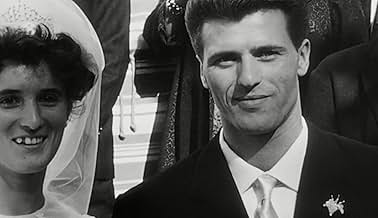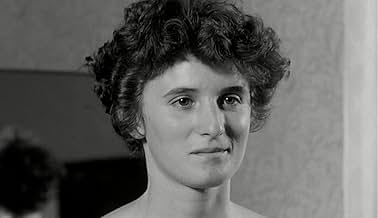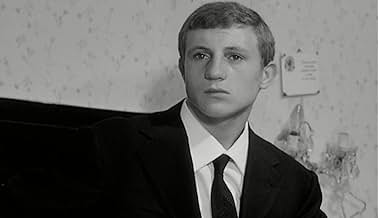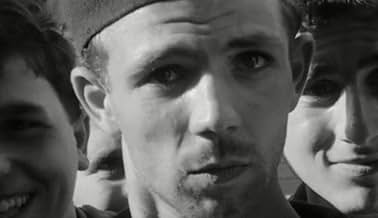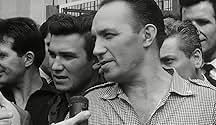IMDb RATING
7.5/10
2.9K
YOUR RATING
Director Pasolini traverses Italy in 1963 with camera and microphone interviewing people in public places about sex, marriage and gender roles.Director Pasolini traverses Italy in 1963 with camera and microphone interviewing people in public places about sex, marriage and gender roles.Director Pasolini traverses Italy in 1963 with camera and microphone interviewing people in public places about sex, marriage and gender roles.
Lello Bersani
- Narrator
- (voice)
Graziella Chiarcossi
- Graziella the Bride
- (uncredited)
Pier Paolo Pasolini
- Self - Interviewer
- (uncredited)
Featured reviews
Pasolini had some topics of interest, and in this documentary he enquires the italian populace about some of them!
The movie follow some kind of structure, but the overall concept is Pasolini interviewing groups of people in several different places. I find some of the question he does a little vague but for at the time being were quite outrageous!
There's the general depiction of how people thought about in the 60's Italy and although both Pasolini and the crowd had some outdated use of language for today standards, there are several interesting points of view for further analysis. Even Pasolini had to regulate some of the answers here with an amusing "autocensura"!
I'm not very fond of documentaries, it drags on a bit after a while , but I found myself engaged at moments.
The movie follow some kind of structure, but the overall concept is Pasolini interviewing groups of people in several different places. I find some of the question he does a little vague but for at the time being were quite outrageous!
There's the general depiction of how people thought about in the 60's Italy and although both Pasolini and the crowd had some outdated use of language for today standards, there are several interesting points of view for further analysis. Even Pasolini had to regulate some of the answers here with an amusing "autocensura"!
I'm not very fond of documentaries, it drags on a bit after a while , but I found myself engaged at moments.
In this documentary, Pasolini travels around Italy and interviews random people in public places about their attitudes towards sexuality, marriage, and gender issues. It's fascinating to hear how Italians in the early 1960s felt about these topics, and there are plenty of opinions that seem shocking from a modern perspective. There are people who think that divorce should be illegal (they'd rather have spouses kill each other), parents who find it perfectly normal for 14 year-old boys to lose their virginity with a prostitute, and women who think it's only right that they have less rights and freedoms than men. It's especially interesting to hear the interviewees confess their unabashed disgust towards homosexuals to the secretly gay director.
However, I can't help but wonder if it wouldn't have been more interesting to include some interviews that weren't conducted in public places with groups of people standing around. As it stands, the movie gets a bit repetitive after a while and probably would have been more effective with a shorter running time.
However, I can't help but wonder if it wouldn't have been more interesting to include some interviews that weren't conducted in public places with groups of people standing around. As it stands, the movie gets a bit repetitive after a while and probably would have been more effective with a shorter running time.
Saw this beautifully preserved/restored print, with subtitles, via YouTube. Pasolini, with his reputation for political and every other form of radicalism, seems inhibited here, even in the discussion segments with Alberto Moravia and Cesare Musatti. The man-and-woman (and children, students)-in-the-street-and-on-the-farm interviews seem dated, probably since the interviews were conducted on the cusp of major changes in marital and family laws, policies, sexual attitudes in Italy and elsewhere. While no groundbreaking documentary, it's still a fascinating document of the time and place. A more daring and cinematically imaginative treatment of similar themes is found in, of course, "I am Curious (Yellow)"(1967) and "I am Curious(Blue)"(1968), directed by Vilgot Sjoman (a former UCLA film student). In those days there were things you could do in Sweden, albeit with censorship problems, that were simply impossible in Italy, period.
At first sigh, social portrait. Pier Paolo Pasolini across Italy , talking with large categories of people about not very comfortable themes. Their answers, the crowd, the familiar names from Antonella Lualdi and Oriana Falacci to Alberto Moravia, Cesare Musatti or Giuseppe Ungaretti interventions and the answers, genuine, innocent, in few cases hypocritics of people and the discover of powerful tradition defining rules of life, the difference, real profound, betwen South and North of Italy, the silence of middle class , the laws and the essence of a special world. Sure, in my case, the name of director/ interwiever was the basic/ fundamental kick for not ignore this documentary. The prize - the high honesty, the humor, smiles, reactions, laugh, shame, reactions, the manner to explore the one front of him by Pasolini, the crumbs of nostalgia, the memories about pasolinian textes. So, a large slice of life, provocative, in same measure, yesterday and today and, in my case, just fascinating.
Pasolini filmed this documentary in 1963, looking for an account of sexual life in Italy at a turning point in history. He travels south and north, to towns and countryside, interviewing intellectuals, workers, farmers and kids. The result is a strikingly accurate portrait of diversities in the country, and of inhibitions and problems to talk about a "natural" thing. Between the notable people interviewed, Nobel prize poet Ungaretti, writers Moravia, Cederna, Fallaci, a whole professional football team, and more.
What stroke me more is the great journalistic pace of the documentary, the technique of intermixing different areas of the country, a very clever approach. A great work still "modern" nowadays.
Sadly amusing the part where Pasolini (an homosexual himself) asked common people an opinion about homosexuality receiving answers of total denigration.
What stroke me more is the great journalistic pace of the documentary, the technique of intermixing different areas of the country, a very clever approach. A great work still "modern" nowadays.
Sadly amusing the part where Pasolini (an homosexual himself) asked common people an opinion about homosexuality receiving answers of total denigration.
Did you know
- ConnectionsEdited into Lo schermo a tre punte (1995)
- How long is Love Meetings?Powered by Alexa
Details
Box office
- Gross worldwide
- $2,789
- Runtime
- 1h 32m(92 min)
- Color
- Sound mix
- Aspect ratio
- 1.85 : 1
Contribute to this page
Suggest an edit or add missing content


